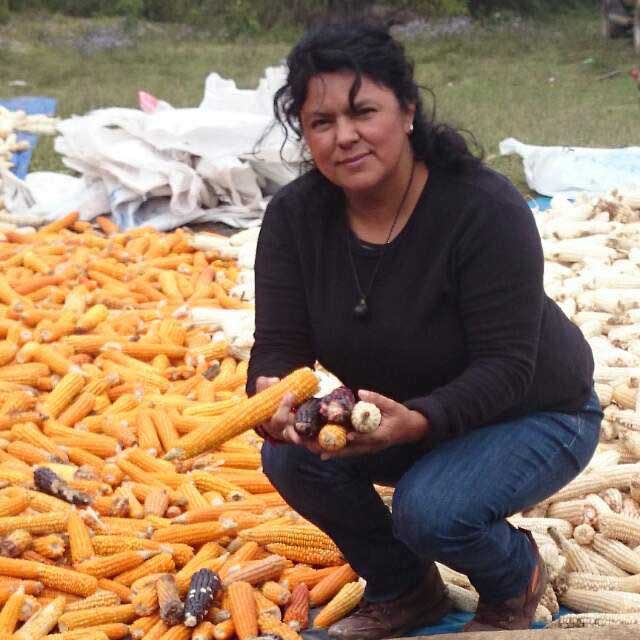We need your help! Rep. Keith Ellison (D-MN) has just circulated a sign-on “Dear Colleague” letter in the U.S. House of Representatives to President Trump, urging him to join the Organization of American States in calling for new elections, and to immediately suspend all security assistance to Honduras. The letter highlights the violent repression of protests since the election, and urges the President “to make clear to the Honduran government that these abuses must cease immediately.” The letter states,
“We continue to have concerns over the candidacy of Juan Orlando Hernandez, as the current president’s campaign for reelection violates the Honduran constitution’s explicit ban on re-election. This blatant violation of Honduran law continues to be an issue of concern, in addition to the lack of integrity in the elections…We believe that the Honduran people have a right to peaceful protests, and are alarmed at the actions of Honduran security forces.”
We need your help in securing the signature of your Member of the U.S. House of Representatives on this letter. Only members of the House can sign the letter. The deadline for signatures is today, Wednesday, December 20th, at 5pm.
——–
To sign on to the letter (or if the staffer wishes an official copy of the letter), your Rep’s staffer can contact Zach Freed (Zach.Freed@mail.house.gov)
NOTE: Please do not contact Ellison’s staff yourself, but ask the staffer to do so.
Call the Capitol Switchboard at (202) 224-3121, give them the name of your Rep, then ask to be connected.
When you call, ask to speak with the aide who handles foreign policy.
Use the script below in speaking with the aide. If the foreign policy aide is not available, ask to leave a message on his or her voice mail. Be sure to get the name of the foreign policy staffer so you can follow up.
Script:
“My name is _____. I am a constituent from (your town/city) in (your state). I am calling to ask Representative _____ to sign the Ellison sign on letter calling for new elections in Honduras and renewing the call to suspend all security aid to Honduras.
The deadline for sign ons is today. Has Representative _______ seen this letter? Can I count on him/her to sign on? Please call me this week at (_your phone number_) to let me know if you have seen the letter, and if Representative _____ will sign it.”
**In your phone conversation, please highlight why this letter is important to you, especially if you have travelled to Honduras or heard a Honduran leader speak in your community.
PROMPT FOLLOW-UP:
It’s useful to follow up with an email to the aide, and you can use the action alert above. You can ask whoever answers the phone for the email for the foreign policy staffer and/or use this formula if you know how to spell their name correctly (the person who first answer the phone can spell it for you):
Firstname.Lastname@mail.house.gov, e.g.
Jane.Doe@mail.house.gov
In an email, you can just ask them to sign the letter, and then if you like send some information.
Here are a few links to share with your Reps:
1.
U.S. at a Crossroad as It Confronts Turmoil in Honduras
in the New York Times
2.
In Honduras, Calls Rise for new Presidential Elections
in the New Yorker
3.
America’s Blind Eye to Honduras’s Tyrant
in the New York Times
4.
The US Should Back New Elections in Honduras
in Bloomberg

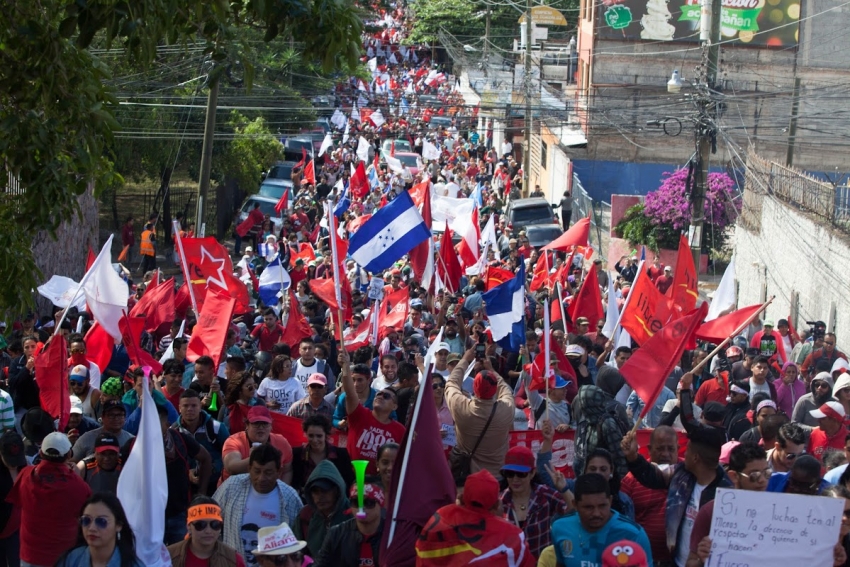
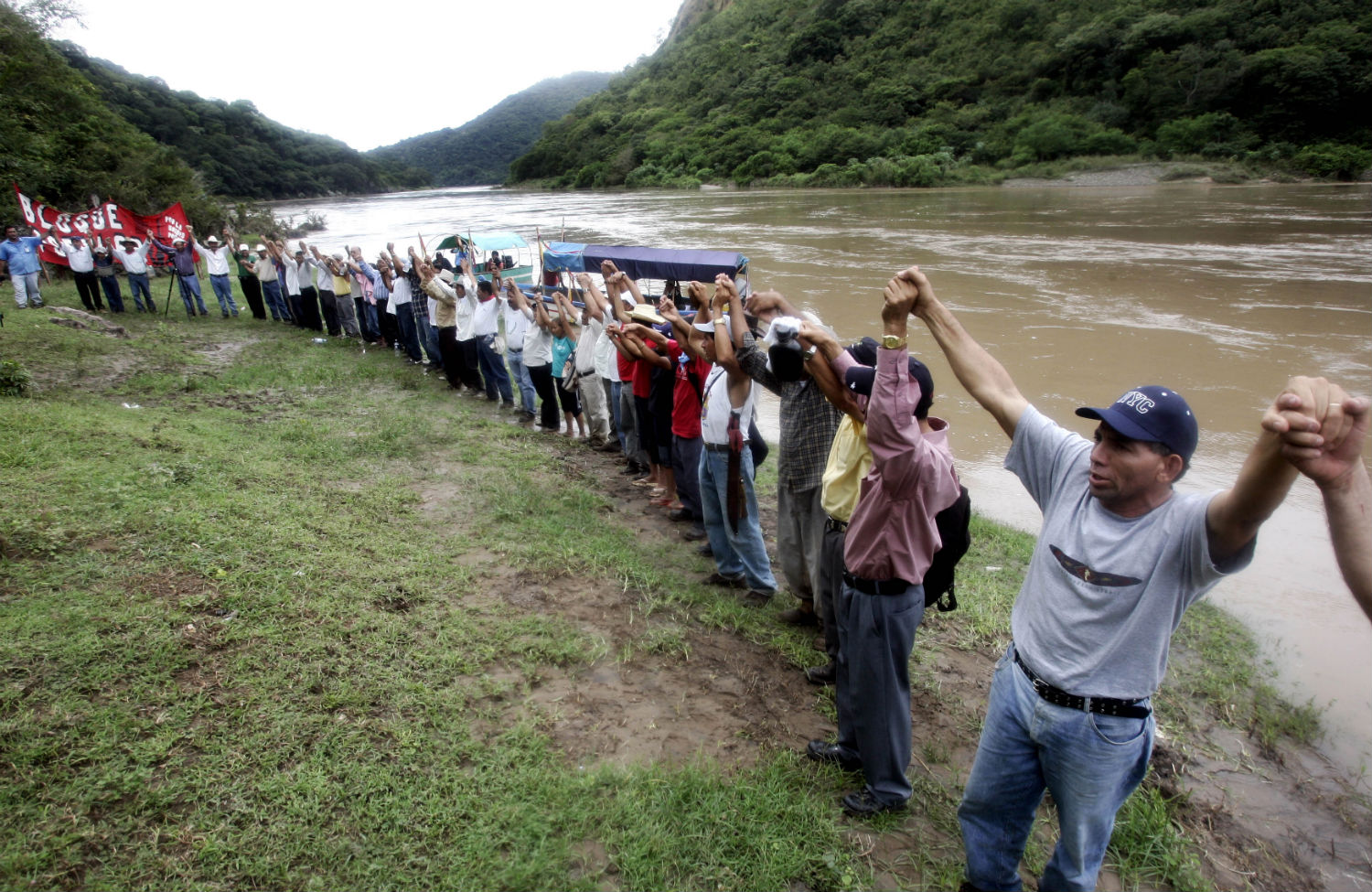
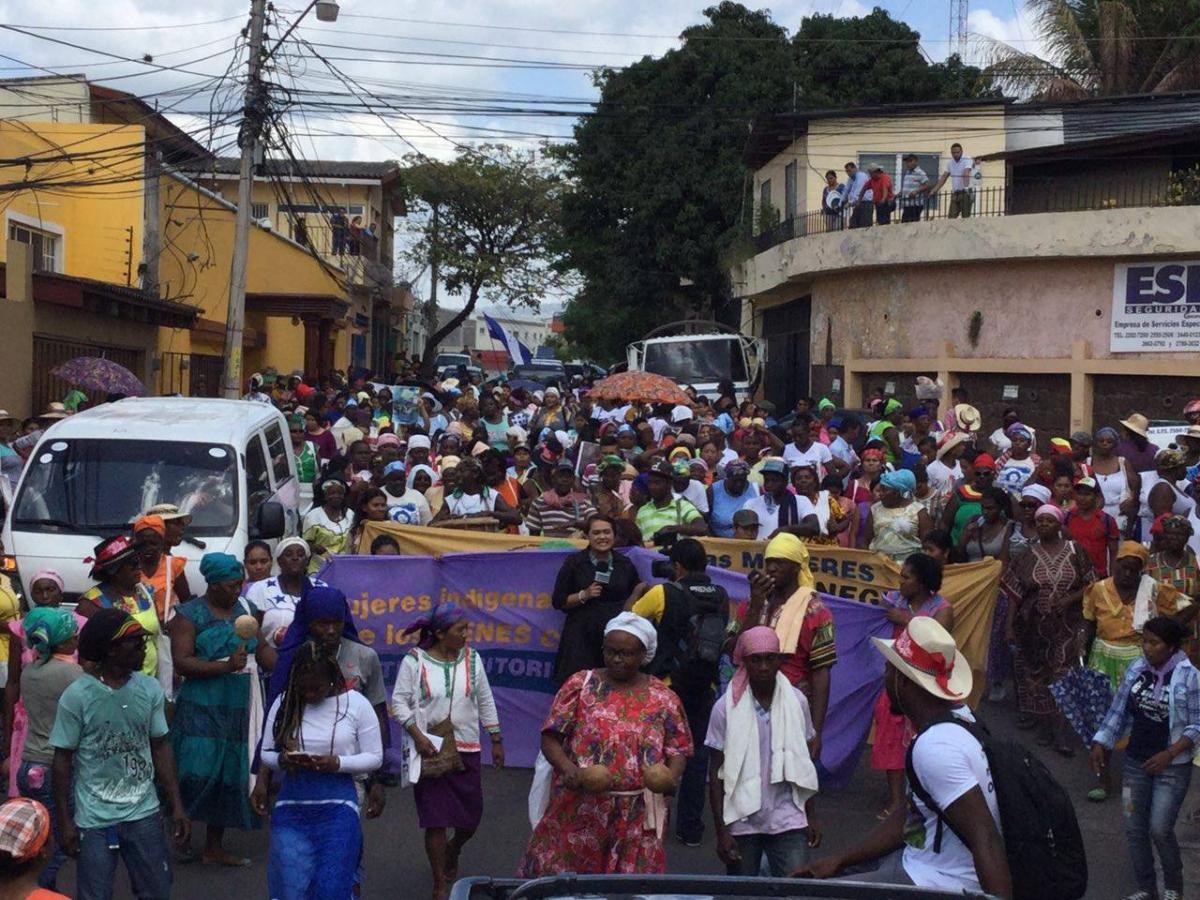
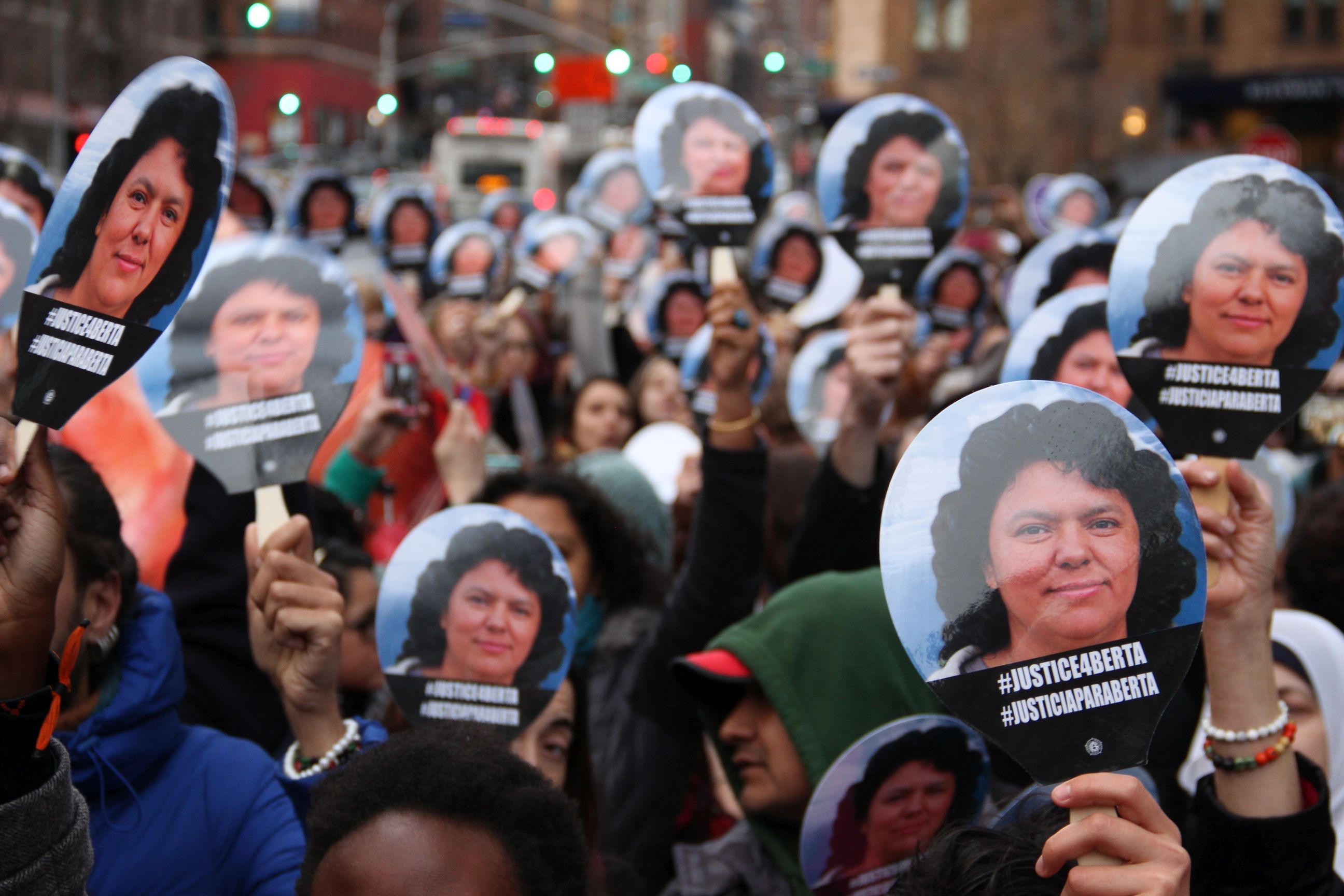
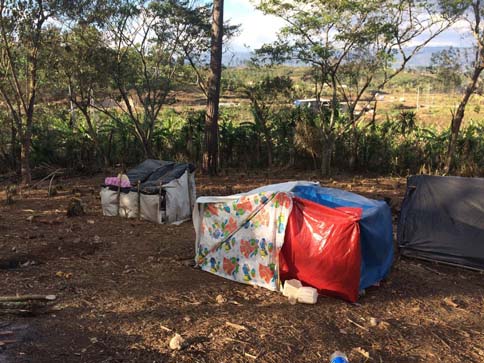
 Our group from Chicago stood staring at the rough wooden table, which held 2-dozen or so spent tear gas canisters plus a couple of bullet shells, collected by the 9th of July community from the area immediately surrounding the place where we stood. The largest one, designed to be fired from a rifle, was stamped “Made in U.S.A.” The connection between U.S. military and police aid to Honduras and the violent persecution of impoverished Honduran farmers was crystal clear in the objects before us.
Our group from Chicago stood staring at the rough wooden table, which held 2-dozen or so spent tear gas canisters plus a couple of bullet shells, collected by the 9th of July community from the area immediately surrounding the place where we stood. The largest one, designed to be fired from a rifle, was stamped “Made in U.S.A.” The connection between U.S. military and police aid to Honduras and the violent persecution of impoverished Honduran farmers was crystal clear in the objects before us. “Thanks be to God that we continue to live on this land,” said one man. After each violent eviction, the community’s commitment is to return and resettle on the land within 24 hours of being pushed off, rebuilding houses and restoring crops as they are able. The bravery and endurance that this strategy demands is fed by their hope of land ownership. They experience other threats in the form of arrest warrants against them and death threats from the national or military police. “Every time we receive a group of international people who are in solidarity with us, it gives us the strength to keep going on with our struggle,” said another.
“Thanks be to God that we continue to live on this land,” said one man. After each violent eviction, the community’s commitment is to return and resettle on the land within 24 hours of being pushed off, rebuilding houses and restoring crops as they are able. The bravery and endurance that this strategy demands is fed by their hope of land ownership. They experience other threats in the form of arrest warrants against them and death threats from the national or military police. “Every time we receive a group of international people who are in solidarity with us, it gives us the strength to keep going on with our struggle,” said another. The National Agrarian Reform Law provides that idle land fit for farming can be expropriated and awarded to indigent and landless persons by the government, but this does not happen often. To force the issue and obtain the land essential for rural people to support themselves and their families, the CNTC works with landless people to settle and plant on unused, undeveloped or abandoned land. The occupants then file for title to the land under the Agrarian Reform Law with Honduran National Agrarian Institute (INA).
The National Agrarian Reform Law provides that idle land fit for farming can be expropriated and awarded to indigent and landless persons by the government, but this does not happen often. To force the issue and obtain the land essential for rural people to support themselves and their families, the CNTC works with landless people to settle and plant on unused, undeveloped or abandoned land. The occupants then file for title to the land under the Agrarian Reform Law with Honduran National Agrarian Institute (INA).

 ting the country.
ting the country.


 In this context, we thank you for your signatures supporting the Berta Cáceres Human Rights in Honduras Act (H.R. 5474). They helped CRLN convince 7 out of 10 Democratic Illinois U.S. Representatives to co-sponsor this important legislation introduced by Rep. Hank Johnson. By the end of 2016, the bill, which would suspend U.S. security aid to Honduras pending compliance with international human rights standards, garnered a total of 52 co-sponsors nationwide.
In this context, we thank you for your signatures supporting the Berta Cáceres Human Rights in Honduras Act (H.R. 5474). They helped CRLN convince 7 out of 10 Democratic Illinois U.S. Representatives to co-sponsor this important legislation introduced by Rep. Hank Johnson. By the end of 2016, the bill, which would suspend U.S. security aid to Honduras pending compliance with international human rights standards, garnered a total of 52 co-sponsors nationwide.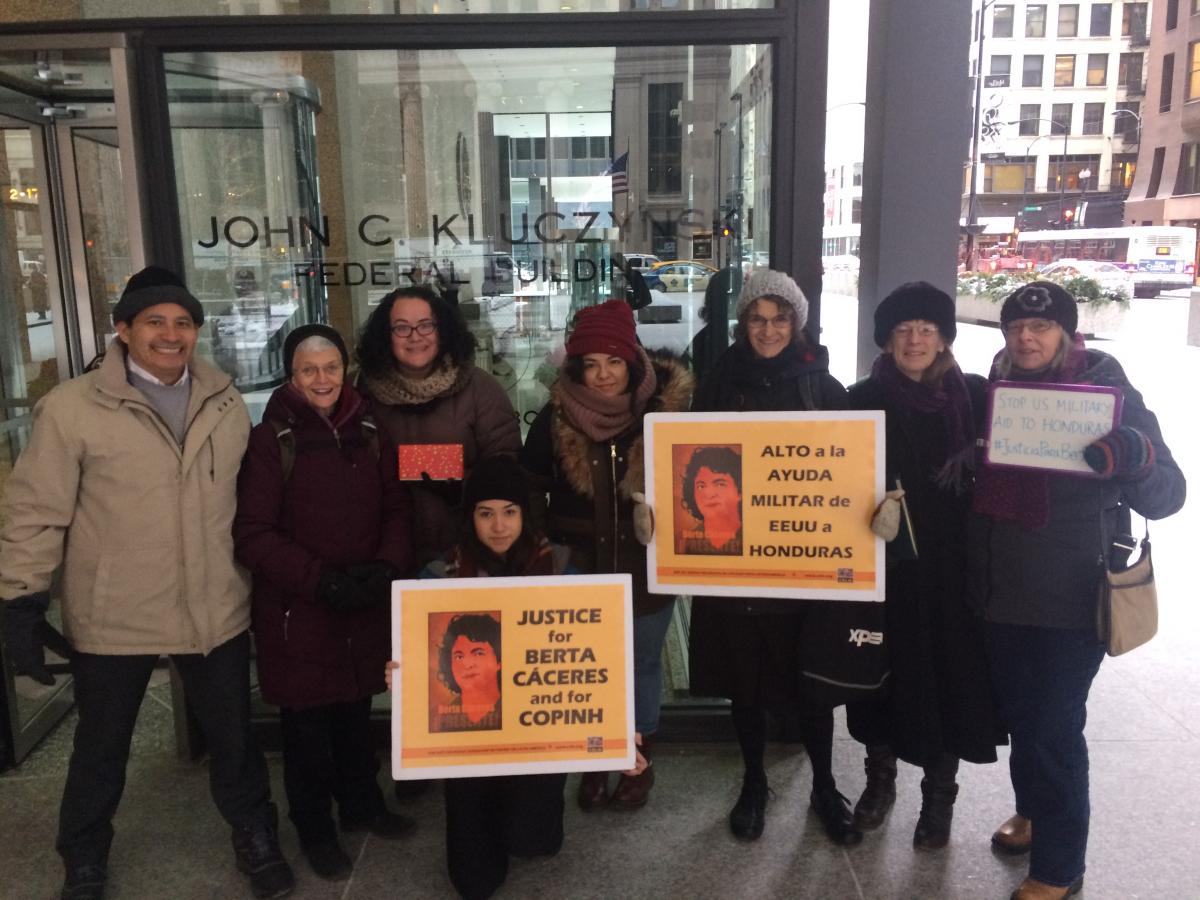

 The 200 signatures delivered to Durbin also appeared on letters to Illinois members of the House urging that they support H.R.5474, the Berta Cáceres Human Rights in Honduras Act, a bill that would also suspend U.S. security aid to Honduras. At this time, seven out of ten Democrats in the Illinois delegation have decided to cosponsor the legislation, a major win that would not have been possible without grassroots pressure from those who signed.
The 200 signatures delivered to Durbin also appeared on letters to Illinois members of the House urging that they support H.R.5474, the Berta Cáceres Human Rights in Honduras Act, a bill that would also suspend U.S. security aid to Honduras. At this time, seven out of ten Democrats in the Illinois delegation have decided to cosponsor the legislation, a major win that would not have been possible without grassroots pressure from those who signed. Despite these ongoing attacks, credible accusations of Honduran state complicity, and an ongoing 95% impunity rate, the U.S. has sent over $200 million in police and military aid since the 2009 coup and, last month, the State Department certified—with little to no evidence—the Honduran government for having met human rights conditions, thus releasing $55,000,000 in security aid.
Despite these ongoing attacks, credible accusations of Honduran state complicity, and an ongoing 95% impunity rate, the U.S. has sent over $200 million in police and military aid since the 2009 coup and, last month, the State Department certified—with little to no evidence—the Honduran government for having met human rights conditions, thus releasing $55,000,000 in security aid.